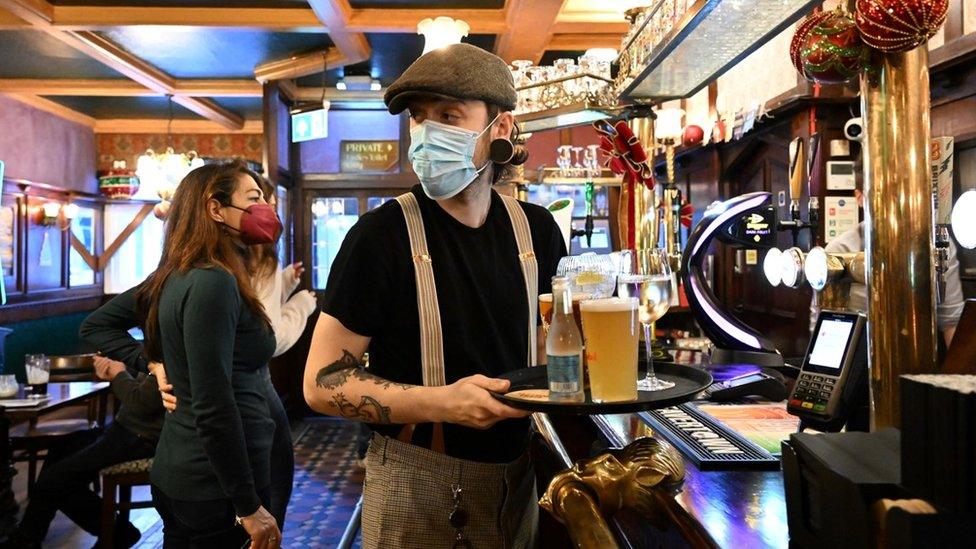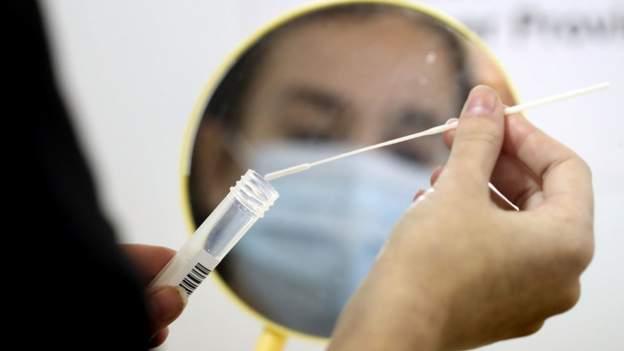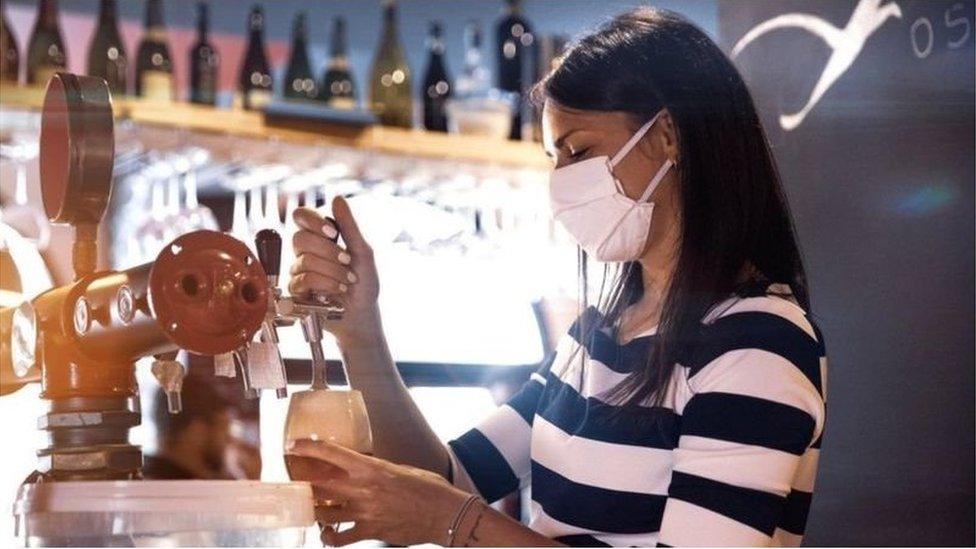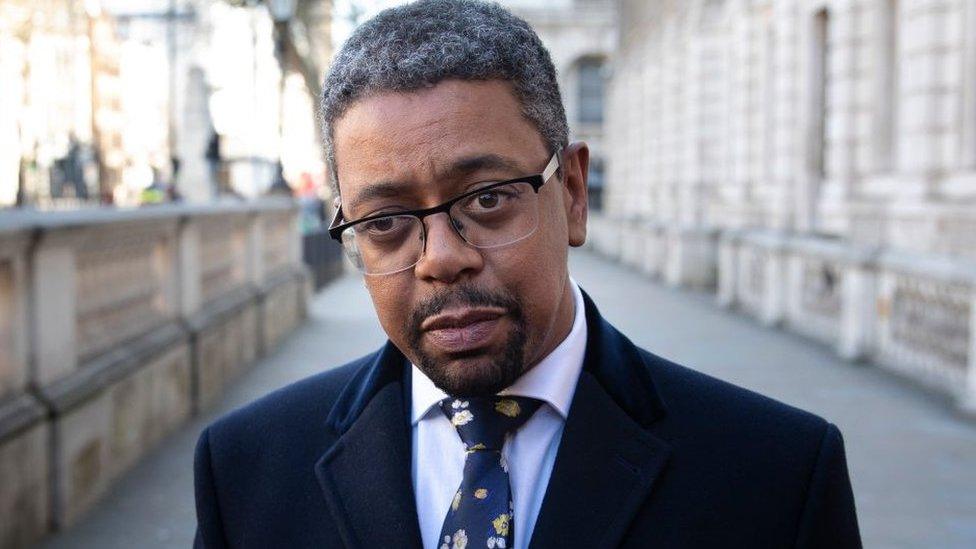Covid inquiry: 'No basis' to stop pubs selling alcohol
- Published

"No basis" for stopping pub selling alcohol, an expert tells the Covid inquiry
There was "no basis" for stopping pubs selling alcohol during the pandemic, the Covid inquiry has been told.
Ex-Public Health Wales communicable diseases director Dr Roland Salmon said it seemed to be "an overly enduring legacy of the chapel heritage".
He also told the fourth day of the Covid inquiry in Wales that school closures would translate to a "loss of life expectancy" among children.
Another expert said that masks should have been mandatory sooner.
Dr Salmon criticised the Welsh government's decision to restrict access to certain supermarket aisles and prevent pubs from selling alcohol as part of its strategy to stop the spread of Covid.
"I can think of no basis on why you might think they would work, "he said.
"Whether you leave the aisles open or you leave them shut really doesn't matter. Actually, if people are going into the supermarket, why do you want to shut one aisle and not the other one?
"Pubs and restaurants settings are an issue when people congregate in them.
"Those people who are vulnerable are best avoiding them and advised to do so. But opening up and not having a beer, that seems perhaps an overly enduring legacy of the chapel heritage, I don't know."
Dr Roland Salmon criticises the Welsh government's strategy for pubs and supermarkets
Dr Salmon also felt the restrictions disproportionately affected children, students and young adults.
Schools in Wales were shut for more than three months during the first lockdown in 2020 and later some classes were done online.
"Those losses of opportunities and that economic loss will translate into ill-health and loss of life expectancy," he told the inquiry.
"It may not be as immediate, but it will certainly be there."
Good adherence to restrictions was needed to help reduce Covid's spread in Wales in October 2020, not a 17-day firebreak lockdown, according to Dr Salmon.
He said because up to 30% of cases in young adults were asymptomatic, the spread of the virus would increase once any firebreak ended.
The two-week firebreak lockdown introduced in Wales in late October 2020 should have been longer, according to Prof Michael Gravenor of Swansea University.
Dr Chris Williams, epidemiologist for Public Health Wales, said he believed making wearing face masks mandatory sooner "would have been a reasonable approach".
He recalled "verbally arguing for face masks" during the Wales Technical Advisory Group's meetings.
"I thought it might be worth a try of masks, even in the absence of evidence," he added.

From late summer of 2020, the Welsh government used computer modelling by experts from Swansea University to try to predict the severity of future Covid waves and try to test the effects various counter-measures.
So, for example, if ministers were thinking of changing rules about mixing or hospitality - this would be fed into a super computer which would try to plot what impact it would have on infection rates.
Before introducing the autumn firebreak the modelling was used to see to what extent it would bring infection rates down.
Prof Michael Gravenor, who led the modelling team, said ultimately the two-week firebreak worked and it took 39 days for infections to return to pre-firebreak levels.
With hindsight, he said a longer firebreak would have been much more effective in suppressing the second wave further into winter.
This contrasts the earlier evidence of Dr Salmon who said that firebreak was "hard to justify".
- Published29 February 2024

- Published1 March 2024

- Published27 February 2024
